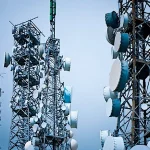Nigeria’s Digital Economy Set to Contribute 21% to GDP – Bosun Tijani
Nigeria’s digital economy is poised to contribute up to 21% of the nation’s GDP, according to Dr. Bosun Tijani, the Minister of Communications, Innovation, and Digital Economy. This milestone is part...

Nigeria’s digital economy is poised to contribute up to 21% of the nation’s GDP, according to Dr. Bosun Tijani, the Minister of Communications, Innovation, and Digital Economy. This milestone is part of a strategic push to leverage technology for national growth and job creation.
Table Of Content
Current Contribution and Growth Plan
Currently contributing between 16% and 18% to Nigeria’s GDP, the digital economy is on a growth trajectory supported by substantial infrastructure investments.
“This means more jobs and opportunities. For the first time in our history, an administration is investing in 90,000 kilometers of fibre optic cables across the country,” Dr. Tijani said.
This large-scale broadband rollout is expected to bring high-speed internet access to businesses, schools, and underserved communities—laying the foundation for a more connected and empowered population.
“We’re connecting schools through cables, not jungles. This will transform learning environments and boost digital literacy,” he added.
Unlocking Economic Potential
Citing a Nairametrics report, Dr. Tijani projected that Nigeria’s digital economy could generate $18.3 billion by 2026, reinforcing its potential to drive sustainable development.
He highlighted the rise of Nigerian unicorns such as Flutterwave, Jumia, Andela, and Interswitch as examples of how the tech ecosystem is already contributing to economic transformation.
“In Q4 2023, the ICT sector contributed about 16.6% to GDP. The sector’s momentum is undeniable,” he stated.
Nigeria’s digital revenue has grown from $5.49 billion in 2019 to a projected $18.3 billion by 2026, underlining the sector’s rapid expansion and significance.
Inspiring the Next Generation
During a visit to Anglican Grammar School, Dr. Tijani shared a personal message of encouragement, urging students to dream big regardless of their background.
“I once sat where you sit. Kindness and empathy shaped my journey. You too can become ministers, ambassadors—or even President,” he said.
To support academic excellence, he announced a fellowship program for the top three students in JSS 1–3 and SS 1–2. Beneficiaries will receive N100,000 annually, alongside laptops and school uniforms, impacting around 70 students each year.
He also pledged to refurbish a school building, digitally equip classrooms, and adopt the school’s science laboratory to foster innovation.
Tech-Driven Agriculture
At an Innovation and Startups Roundtable in Ogun State, Dr. Tijani emphasized the critical role of technology in transforming Nigeria’s agricultural sector.
“With our population and traditional farming methods, we can’t meet food demand without digital tools,” he said.
He encouraged farmers to adopt mobile apps, sensors, and drones for crop monitoring, pest control, and increased productivity.
Drawing parallels with Ukraine, he noted that technological investments enabled sustained agricultural output even during conflict.
“We must reduce food imports and conserve foreign exchange through smart agriculture,” Tijani urged.









No Comment! Be the first one.